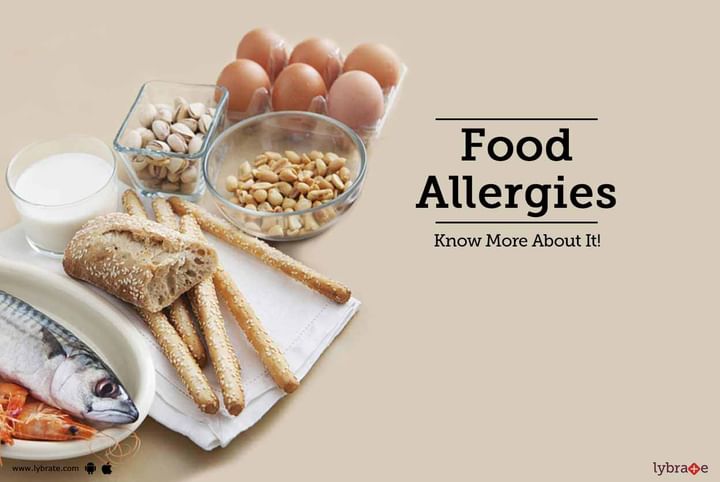Get the App
For Doctors
Login/Sign-up
Last Updated: Aug 09, 2023
BookMark
Report
Food Allergies - Know More About It!
Dr. Saibal Moitra (Prof.)Allergist/Immunologist • 28 Years Exp.MBBS, MD Respiratory Medicine, Ph.D - Physiology, FCCP (USA), DAA, FRCP (London)
Every year, the emergency rooms at hospitals get flooded by cases of allergic reactions from food. According to a census, about 15 million Indians suffer from some kind of food allergy. The symptoms of food allergy may vary from itchy mouth to potentially fatal conditions like anaphylactic shock. Other symptoms of an allergic reaction can present themselves as difficulty in breathing, swelling of tongue, rashes and intestinal discomfort.
According to specialists, allergies to food can develop at any age, at any time. Hence, if you suspect a sudden allergic reaction to a food that you have consumed before without any problem, it is advised to consult your doctor.
Here is a list of the most common allergy-causing foods-
- Milk: Milk is the most common food that children and infants are allergic to. Milk allergy must not be confused with lactose intolerance wherein a person faces difficulties in digesting the sugar present in milk. The two conditions are not related. Milk allergy is the hypersensitivity reaction that happens in response to certain proteins present in milk and can be potentially deadly. Most children are seen to outgrow their allergy to milk.
- Wheat: It is a common misconception to confuse Celiac’s disease with wheat allergy. Wheat allergy exclusively occurs due to the hypersensitivity to the protein present in wheat alone. In Celiac’s disease, it is the gluten in the food they are hypersensitive to, which is also present in rye, barley and oats.
- Soy: Soy is a very common allergic food and most children seem to outgrow it by the age of 10. Most of the time, soy allergy is not too severe and the symptoms presented are mostly mild. Although, cases of anaphylaxis in reaction to soy have been reported. Soy and soy protein are very common ingredients found in food, hence it is advised to check the ingredients present before consuming it.
- Shellfish: This allergy usually does not go away and you are most likely to deal with all your life. Most people who experience allergies from shellfish are most likely to be hypersensitive to both crustaceans (lobsters, shrimps and crabs) and molluscs (mussels, oysters, scallops and clams). This type of allergy can become very intense and you must even avoid the steam produced from cooking shellfish. For some people, the mere contact with shellfish can trigger an allergic reaction.
In case you have a concern or query you can always consult a specialist & get answers to your questions!



+1.svg)
